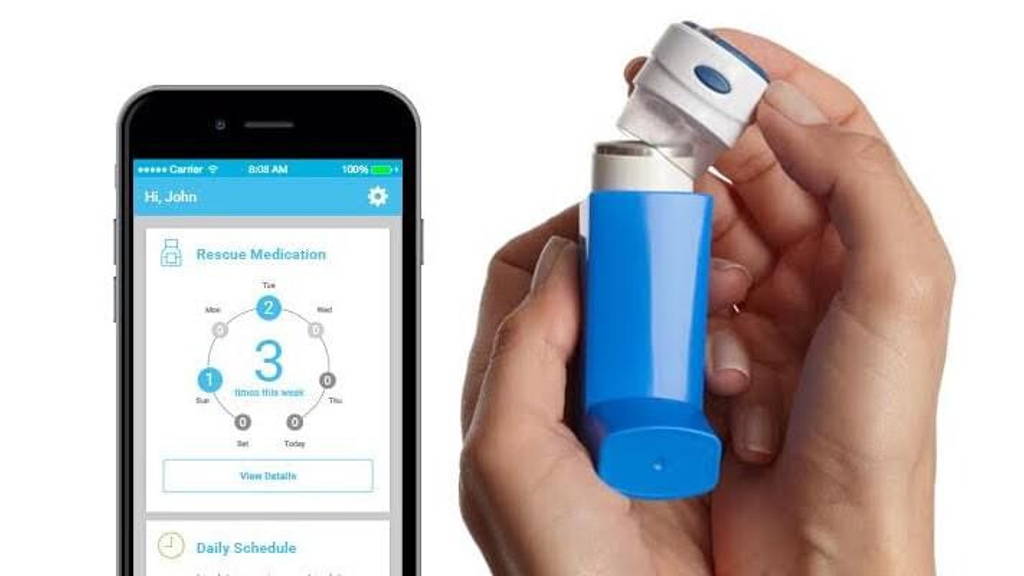An estimated 300 million people worldwide suffer from asthma, and this number is estimated to grow in the years to come. Asthma is a chronic disease, which means that patients’ have constant inflamed airways. When something triggers the patients’ symptoms, the airway muscles tighten even more, making it difficult to breathe. This leads to symptoms such as coughing, wheezing, shortness of breath and/or chest tightness.
Smartphones are becoming more and more popular to track and fight asthma. U.S.-based Propeller Health has released the Propeller Sensor, which should make managing asthma easier.
The sensor can be ordered through the website of Propeller Health. One downside? The sensor has a unit cost of approximately $300. It is also currently only available through certain health plans and sponsors. The sensor is normally prescribed by a doctor, after which purchasing is possible through a dedicated link on the Propeller website.
Smartphones are becoming more and more popular to track and fight asthma. U.S.-based Propeller Health has released the Propeller Sensor, which should make managing asthma easier.
Managing the disease
The sensor is pretty easy to use: the patient simply places it on top of his or her inhaler. When using the medication as usual, the sensor records when, where and why patients have symptoms. A Bluetooth connection with the patients’ smartphone makes sure that all the gathered information is stored in an app. The company claims that patients suffered up to 79% fewer asthma attacks. A study conducted by Propeller and Dignity Health showed that hospital visits related to asthma dropped from 1.9 to 0 among 330 patients who had attached the sensor to their inhaler during an 11-month period.Taking medication
The app also helps patients to manage their medication. It shows a daily schedule and checks off the reminder, to show patients, parents and professionals whether someone has taken their medication on time. Taking medication correctly is something few asthma patients do, while it can prevent an attack, going to the emergency department, or being hospitalized. The app should help patients to remember to take their medication correctly.Asthma hotspots
The data the apps records is not just helpful to the patient: it might also be of help to city planners. When enough people use the app in one area, it might be able to show asthmatic hotspots. Propeller tested their app in Louisville, Kentucky, among 140 asthmatic individuals for two years. The app recorded a total of 5,600 uses in this timespan. The study found that proximity to railroads and utilities were the two major causes of asthma attacks. Schools and places of worship were also full of asthma triggers. The city of Louisville is now making policy changes to improve emissions standards and clean the air, after being presented with the collected data.The sensor can be ordered through the website of Propeller Health. One downside? The sensor has a unit cost of approximately $300. It is also currently only available through certain health plans and sponsors. The sensor is normally prescribed by a doctor, after which purchasing is possible through a dedicated link on the Propeller website.






